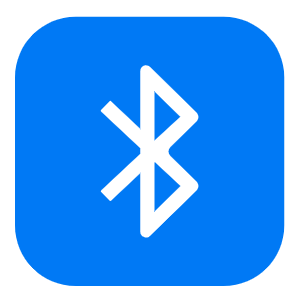
Bluetooth modules are the heartbeat of wireless connectivity in a myriad of devices, from simple data transmitters to complex IoT ecosystems. Understanding the details of Bluetooth modules is crucial for developers and engineers to select the right component for their projects. This article provides an insightful guide to the essential specifications and features of Bluetooth modules.
Core Components of a Bluetooth Module
A Bluetooth module is a compact, self-contained unit that enables short-range wireless communication. It typically includes the following components:
- Microcontroller Unit (MCU): The brain of the module, handling data processing and executing commands.
- Bluetooth Transceiver: Manages wireless communication, including data transmission and reception.
- Antenna: Facilitates the transmission and reception of radio signals, either as an integrated part or as an external attachment.
- Flash Memory: Stores firmware and operational data.
- RAM: Provides temporary data storage during operation.
- I/O Interfaces: Allows the module to connect with other devices or systems, including UART, SPI, I2C, or USB.
Key Specifications to Consider
When choosing a Bluetooth module, consider the following key specifications:
- Bluetooth Version: Newer versions offer improved speed, range, and features. Determine the version that best suits your project requirements.
- Range: The communication distance the module can cover, which can vary from a few meters to hundreds of meters.
- Power Consumption: Crucial for battery-powered devices, with specifications detailing sleep, standby, and active mode consumption.
- Data Rate: The speed at which the module can transmit data, affecting the performance for applications that require high throughput.
- Protocol Support: The module should support relevant Bluetooth profiles and protocols necessary for the intended application.
- Security Features: Encryption and authentication mechanisms to protect data integrity and privacy.
- Operating Temperature: Ensure the module can withstand the temperature range of the intended operating environment.
- Certifications: Compliance with regulatory standards and Bluetooth SIG qualifications.
Applications of Bluetooth Modules
Bluetooth modules are versatile and can be found in a variety of applications:
- Wearable Devices: Fitness trackers, smartwatches, and health monitors utilize Bluetooth modules for data syncing and communication.
- Home Automation: Smart home devices like thermostats, lighting systems, and security cameras rely on Bluetooth modules for remote control and data transmission.
- Industrial IoT: Modules are used for sensor data collection, equipment monitoring, and process automation in industrial settings.
- Asset Tracking: In logistics and fleet management, Bluetooth modules help track the location and status of assets in real-time.
- Audio Devices: Wireless headphones, speakers, and hearing aids use Bluetooth modules for high-quality audio streaming.
Challenges in Bluetooth Module Integration
Integrating Bluetooth modules presents challenges such as interference with other wireless signals, ensuring compatibility with diverse devices, and managing power consumption for optimal battery life.
Strategies for Effective Integration
- Signal Interference Mitigation: Use shielding and proper antenna placement to minimize interference.
- Device Compatibility Testing: Regularly test the module with other devices to ensure seamless connectivity.
- Power Management Optimization: Implement sleep modes and efficient data transmission strategies to extend battery life.
Conclusion
Bluetooth modules are compact powerhouses that enable a vast array of wireless applications. By understanding their core components, key specifications, and potential challenges, developers can make informed decisions when integrating Bluetooth modules into their projects. With careful consideration of the module’s capabilities and the project’s requirements, Bluetooth modules can be the key to unlocking seamless wireless connectivity and innovative product development.
As a professional manufacturer of Bluetooth module, Tecksay has independently developed and produced a number of Bluetooth modules that have been applied to many industries. With more than ten years of industry experience, Tecksay can customize Bluetooth Module embedded solutions for customers from design, project management, function customization, system development and other aspects.



